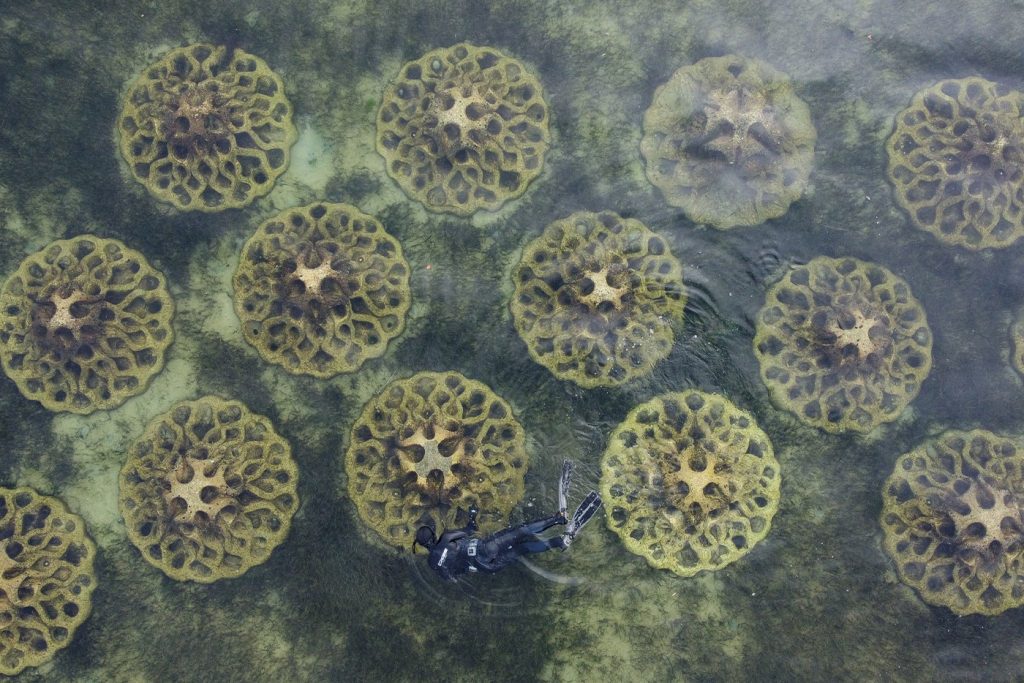The Dell is a quiet, family-friendly beach located at the picturesque Clifton Springs on the Bellarine Peninsula. Swirling currents and severe weather events have contributed to significant erosion of the shoreline over time, threatening the future of the natural attraction. To mitigate future coastal erosion of the Dell, the Geelong City Council commissioned the Dell Eco Reef project, which involved the installation of multiple concrete wave break modules in the shallow waters to reduce the strong impact from unfettered waves.
Formally named ‘Erosion Mitigation Units’ (EMU), the 46 concrete wave break modules are also artefacts of sculptural beauty that simultaneously promote marine biodiversity. Designed by Alex Goad of Reef Design Lab, each cavernous, undulating module features an intricately textured surface with nooks and crannies to encourage colonisation by marine organisms. Embedded into the surface of each module are recycled shells, provided by the Geelong City Council.
The reusable formwork used to produce the wave break modules was manufactured and supplied by Reef Design Lab, who engaged SVC to cast the large artificial reef units out of marine-grade precast concrete. The units were successfully installed on a spring afternoon in late 2022, where they now exist as a distinctive landmark of Clifton Springs. Community interaction and engagement has become another benefit of the Eco Reef installation – Dell beachgoers can wade up to the wave break modules in low tide, or snorkel around the artificial reef at high tide, watching the various sea creatures that now call the reef home.
The Dell Eco Reef project is part of the Geelong City Council’s environmental preservation strategy and received four well-deserved accolades in the 2023 Australian Good Design Awards, including the Good Design Award for Sustainability.
In-situ images of the Eco Reef below were kindly supplied by Reef Design Lab.



